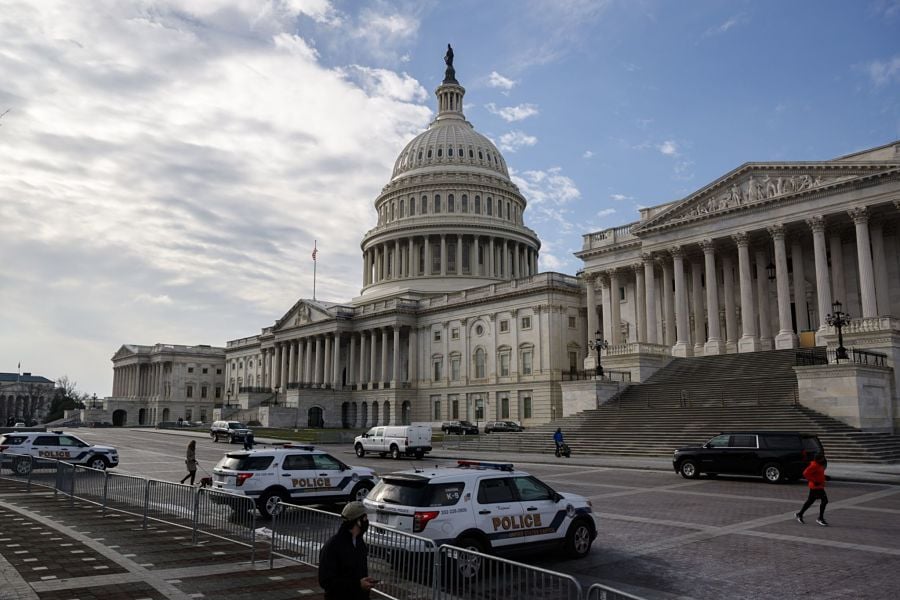

Legislation that would require corporations to release more information about their climate-related risks faces a difficult path through Congress but the measure does signal support at least from Democrats for a more muscular Securities and Exchange Commission approach to environmental social and governance disclosures.
Last week, Sen. Elizabeth Warren, D-Mass., and Rep. Sean Casten, D-Ill., introduced the Climate Risk Disclosure Act, which would direct the SEC to promulgate within two years rules that would mandate that public companies disclose greenhouse gas emissions and fossil fuel assets and how their valuation would be affected by climate change.
Under current law, ESG disclosures are voluntary. But the SEC has indicated over the last several weeks that it intends to step up its ESG oversight. In March, the SEC released a request for comment on climate-risk disclosures and also formed an enforcement task force focused on climate and ESG issues.
The bill introduced last week by Democratic lawmakers will have a tough time garnering the 10 Republicans required for the 60 votes needed to pass most legislation.
“It would be difficult to overcome a filibuster in the Senate, but that doesn’t mean [the bill] doesn’t serve an important purpose,” said Milan Dalal, co-founder and managing partner of Tiger Hill Partners, a government relations consulting firm. “This legislation, which is backed by progressives and moderates, provides political support to the SEC to usher in bolder [ESG] measures.”
Newly confirmed SEC Chairman Gary Gensler indicated in his Senate confirmation hearing in March that he supports expanded ESG disclosures. But Republicans were almost unified in their opposition to Gensler, partly as a result of to his ESG stance.
“Having political support from Democrats on Capitol Hill will ultimately strengthen his resolve to tackle this important issue,” said Dalal, a former Democratic aide on the Senate Banking Committee and former staff director of the panel's securities subcommittee.
Casten’s bill could be voted on soon by the House Financial Services Committee.
“This is a commonsense, market based-solution that is essential to protecting our financial system and the stability of the U.S. economy,” Casten said in a statement to InvestmentNews. “No matter if there’s a D or R behind your name, that’s something you should be able to support."
The financial panel will take up a roster of bills Tuesday, including one written by Rep. Juan Vargas, D-Calif., that would require companies issuing securities to make annual disclosures of ESG metrics and how they affect their long-term business strategy.
The number of Republicans voting for that bill and others during so-called markups by the House committee “could serve as a harbinger for potential Senate activity,” said a financial industry lobbyist who spoke on background to discuss the politics surrounding ESG bills. “My guess is that it is unlikely you will see any” GOP support.
But that isn’t stopping Democratic lawmakers from seeking backing for ESG legislation across the aisle in the narrowly divided House and Senate.
Rep. Andy Levin, D-Mich., intends to reintroduce in coming weeks bills that would promote sustainable investing by requiring retirement plan fiduciaries and other financial advisers to consider ESG factors in investment decisions and disclose how they use them.
A Levin staffer is optimistic about the prospects for the bills.
“I think there is growing realization of the need to incorporate ESG factors among many in the investment community,” said Meseret Araya, a Levin legislative aide. “ We believe it makes business sense and hopefully that can elicit support from all corners.”

The alternatives giant's new unit, led by a 17-year veteran, will tap into four areas worth an estimated $60 trillion.

"It's like a soap opera," says one senior industry executive.

The latest annual survey from EBRI and Greenwald Research sheds light on anxieties around living costs, volatility, and the future of federal income support in retirement.

It's a showdown for the ages as wealth managers assess its impact on client portfolios.

The Merrill Lynch defectors expand RBC's reach in Texas while LPL bolsters its New York presence.
RIAs face rising regulatory pressure in 2025. Forward-looking firms are responding with embedded technology, not more paperwork.
As inheritances are set to reshape client portfolios and next-gen heirs demand digital-first experiences, firms are retooling their wealth tech stacks and succession models in real time.
